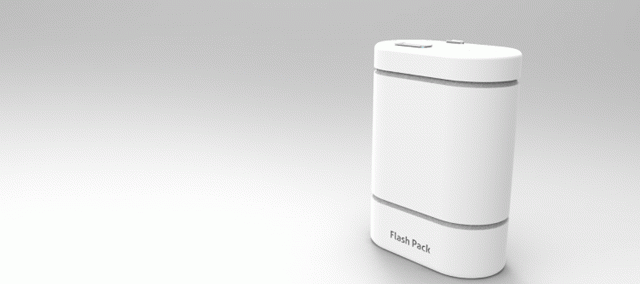Pakistani entrepreneur invents power bank that charges in just 14 minutes
Abdullah claims he was inspired by batteries for electric vehicles as they charge ten times faster than regular ones

PHOTO: TECH IN ASIA
Abdullah, who’s a mechanical engineer by training, didn’t think existing battery packs were a viable solution. They required hours to charge on their own and were too unwieldy to be lugged around. Realising that this was a problem undoubtedly faced by others, he took it upon himself to figure things out.
Pakistani scientist couple leads the way with underwater drones in Australia
After speaking to some professors at his university to validate his idea, Abdullah forged ahead with his plans and started Micropowerlabs with the aim to build a better, more efficient power bank. He was accepted at an incubation program run by the government of Chile, which gave him US$35,000 as seed capital, and spent six months in the country along with his co-founder.
More juice
What he came up with is Flashpack – a power bank that is able to charge fully in just 14 minutes. Abdullah claims he was inspired by the tech behind batteries for electric vehicles as they are capable of charging ten times faster than regular batteries.
However, the tech hasn’t been properly applied for use in smaller, consumer products yet, he says. “I took the technology that was larger in scale, applied the same principles, and shrunk it down,” explains Abdullah.
This Pakistani bootstrapped his company all the way to IPO
Flashpack is currently live on Indiegogo with a “super early bird” price of US$50 + shipping. It differs from other power banks available today in the sense that it doesn’t rely on micro USB slots for charging.
There’s a larger, circular slot that is compatible with all PC laptop chargers. Macbook chargers are also supported – the startup will ship a connector pin for those who request one. And, if anyone still wants to use a standard micro-USB charging cable, that’s also an option – but it’s slower and won’t supply the required juice for a 14-minute charge.
Spoiled for choice
So why would someone opt for the relatively unknown Flashpack over a tried-and-tested brand like Xiaomi? “It [Xiaomi] may give you double, triple the capacity but you still have to charge them for hours,” affirms Abdullah.
“And that’s the fundamental problem with power banks. If you have to charge them with the same speed that you’re charging your phone, what’s the point. With Flashpack, users don’t even need to plug their phones into their wall chargers anymore.”
Pakistan wins three gold at regional tech awards
Abdullah hints that his product is aimed more towards people who remain away from power outlets for several hours at a stretch. “The idea is to simplify your life. If you’re traveling, or constantly on the go, we don’t want you to carry a bunch of chargers – one for every different device you own. Just take this one and have peace of mind,” he outlines.
Flashpack is currently undergoing another cycle of incubation, at Google-backed Nest I/O. Manufacturing of the device will be done in Shenzen, China and early backers should expect to get their products by June.
Abdullah says there are plans to develop more power banks too, and may decide upon a 5,000 mAH variant which will retail for approximately US$70. However, he’s waiting to see how well this campaign performs before jumping in.
This article originally appeared on Tech in Asia.



















COMMENTS
Comments are moderated and generally will be posted if they are on-topic and not abusive.
For more information, please see our Comments FAQ